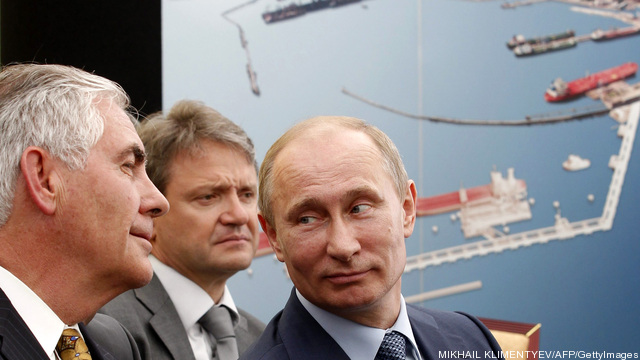
ExxonMobil is the world’s largest international oil company by virtually all operational and financial metrics and Steve Coll’s book offers a fascinating look at the inner workings of this secretive corporate colossus.
A vestige of John D Rockefeller Senior’s Standard Oil, which famously avoided speaking to the press for much of its existence, ExxonMobil is known within the industry for its operational expertise, rigorous financial discipline, project management skills and tight-lipped nature. Coll’s extensive research and unprecedented access to individuals within and outside the company with first-hand knowledge of transformative events is what makes the book stand out.
The author does a good job of describing major industry events and trends in simple terms, but for someone with fairly detailed knowledge of the global oil and gas industry, it’s the colorful personalities, opinions and intimate details that kept me reading.
The book starts out with an extremely detailed account of the infamous 1989 Exxon Valdez oil spill disaster that permanently impacted the company’s culture and strategy. In the wake of the incident, Exxon – which had yet to merge with Mobil, another Standard Oil fragment – became obsessed with safety and risk management. The kidnapping of a company executive added security to Exxon’s short-list of obsessions.
“American spies and diplomats who occasionally migrated to work at Exxon discovered a corporate system of secrecy, nondisclosure agreements and internal security that matched some of the most compartmented black boxes of the world’s intelligence agencies.”
Coll keeps the story fresh by jumping around the globe from Central and West Africa to Indonesia, the Middle East, Russia and Venezuela where he focuses on defining moments in the corporation’s history that can essentially be read independently and in any order. While describing Exxon’s dealings in Chad, Coll provides a description of a meeting between Chad’s President Deby and a young senator from Illinois named Barack Obama that exemplifies the level of detail Coll captures, much of which comes in the form of direct quotes from official diplomatic cables and documents obtained via the Freedom of Information Act.
The relationship between ExxonMobil and the US government is a recurring theme in which the company both cooperates and politely ignores US officials based on what best suits the corporation’s interests. Nowhere does this relationship become more strained than around the issue of climate change.
Coll spends a considerable amount of time on Exxon’s treatment of climate change, which is the only portion of the book where a hint of bias seems to bleed through. The author does very well at presenting Exxon’s position within complex situations involving numerous stakeholders with various interests without taking sides. But he does appear to disagree with the company’s thinking, handling and messaging around the climate change issue.
Anyone who covers the oil and gas industry knows that ExxonMobil is the gold standard among international oil companies. “The Standard & Poor’s downgrade meant that ExxonMobil, one of only four American corporations to maintain the AAA mark, now possessed a credit rating superior to that of the United States.”
While industry watchers are familiar with Exxon’s global operations and publicly-filed financials, they will likely be drawn to the behind the scenes details Coll sheds light on in “Private Empire.” At the same time, his clear explanations and global, episodic approach help make the book accessible and entertaining for just about any reader.
